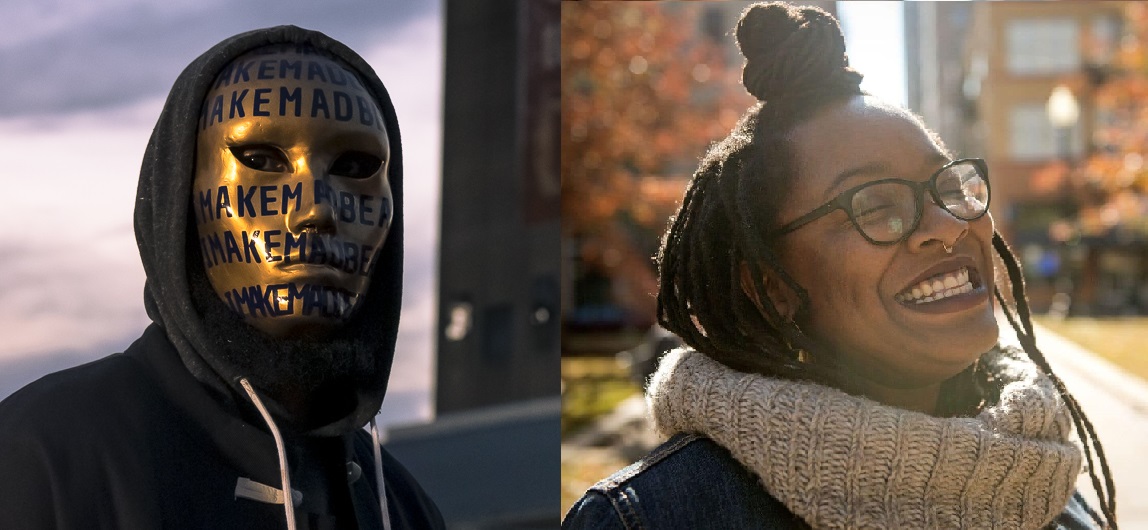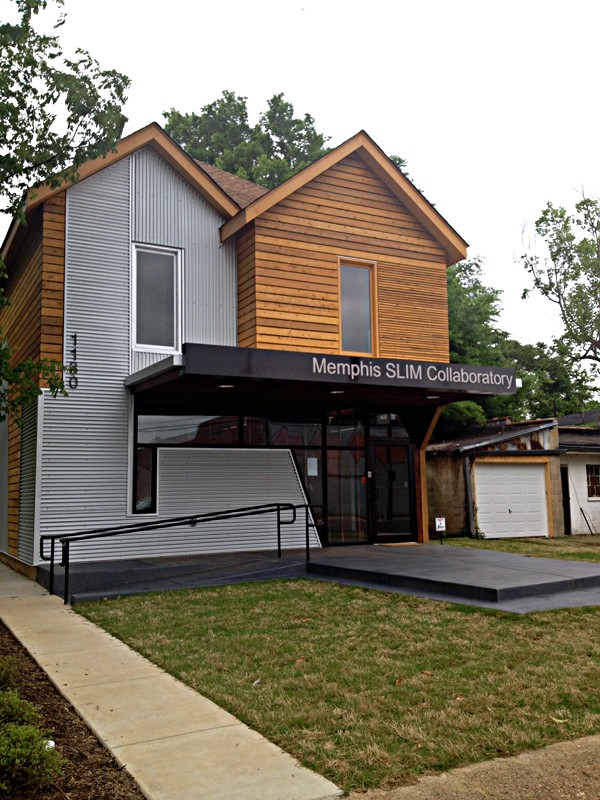Since 2020, YouTube’s $100 million Black Voices Fund has been doing stellar work around the globe, producing original new works that express many facets of the Black experience and empowering emerging artists to better establish themselves and give their work a higher profile. Future Insiders is a part of the Music Community Pillar of the Black Voices Fund. It creates opportunities for exposure and learning for young people across the globe. So far, the program has partnered with community organizations in New York, Los Angeles, The Bay Area, Rio de Janeiro, Houston, Atlanta, London, Lagos, and Accra.
Now, thanks to a new partnership with UNAPOLOGETIC and Memphis Slim Collaboratory, aka the Memphis Slim House, Future Insiders is adding Memphis to that list.
The two Memphis organizations have joined forces with YouTube Music to host an initiative designed to reach youth who aspire to enter the music and creative industries. The immersive four-day virtual course will provide an outlet for young adults aged 18-26 to learn first-hand skills from successful music artists, industry experts and the YouTube Music team. Registration for the free course, which runs from Monday, March 21 through Thursday, March 24, is now open at this link.
Memphis Flyer spoke with IMAKEMADBEATS, founder of UNAPOLOGETIC, and Tonya Dyson, executive director of Memphis Slim Collaboratory, about what they hope to accomplish and what participants can expect from the experience.
Memphis Flyer: What was the catalyst for Future Insiders coming to Memphis?
IMAKEMADBEATS: YouTube reached out to us. A friend — and entrepreneurial mind — who works for YouTube, Deron Hall, reached out to UNAPOLOGETIC and Memphis Slim House, towards the top of this year, and put us on to this program to see if we were interested.
This is not unlike work that UNAPOLOGETIC does anyway, true?
IMAKEMADBEATS: Yeah. We’ve taken an unorthodox approach to that, historically. This’ll probably be the most traditionally structured thing we’ve ever been a part of, regarding something like that. But yeah, we just pulled in 40 interns who are 100 percent Gen Z’ers, to help them learn and grow. So we’ve always been involved in that form of education. And the Memphis Slim House has that deep in its roots; it’s the very purpose of its existence. Memphis Slim House has definitely done its work, and continues to do its work, helping out young people in the city.
Tonya, the Collaboratory has had workshops and seminars like this for years, hasn’t it?
Tonya Dyson: Yeah, we have. So we definitely love the fact that we got this opportunity. One, to partner with UNAPOLOGETIC, and of course to double down with such a major brand as YouTube Music and the Black Voices Fund.
Has YouTube come in with a pre-structured program, or is there a lot of leeway in how you manage it?
IMAKEMADBEATS: They came in with a structure that fits how they’ve done it in previous cities. But they also let us speak specifically to the culture and context of this city. And around that, we get to imagine and pull in some cool people who can speak to those ideas. Because Memphis and the creative industries here are very different from every other city.
So they help bring in some expertise, and that complements your knowledge?
Tonya Dyson: Yes, in a sense. It’s a really great partnership in every sense of the word. We’re all pooling our connections. They had a set structure as far as it being four days, operating within the time frame of two to three hours of virtual programming. But they also let us use our voices to create and shape what the Memphis version would look like. One of the things they kept saying was, ‘Memphis can look different.’ Because you see Memphis everywhere. When it comes to hip hop, when it comes to entrepreneurship, when it comes to film, when it comes to dance, you see Memphis all over the place. So one of the things they did was to give us the creative freedom to imagine a Memphis version of Future Insiders, where we can use artists who are local, but national at the same time. They’re homegrown here, but they have the national spotlight. So it’s kind of like a homecoming, where we can match local artists with the nationally known artists. And we can meld the two, to bring in all their experiences.
Are the presentations grouped by topic?
Tonya Dyson: It’s really a mix of a lot of fireside chats, breakout discussions and panel discussions. And it really deals with the artists in a holistic sense. So not only are we giving music industry pointers, we’re also talking about songwriting, fashion and styling, videography and photography, and even wellness: well being, health and wholeness. Artists will talk about how they maintain their mental health and build their physical strength. And we’ll also talk about balancing multi-hyphenates. That’s our actual panel discussion, where we have people who wear multiple hats giving pointers on how to do that. So this won’t be the typical panel discussion, where we say, ‘These are the industry things and here are some pointers.’ We’re taking a well rounded approach, and that’s made it a lot more fun to plan.
So you’ve got working artists coming in to speak? Will there be some UNAPOLOGETIC artists involved?
IMAKEMADBEATS: Our aim was really to facilitate a larger discussion with people who perhaps wouldn’t be as accessible. So it’s about reaching for Amanda Seales or a Money Man or Memphis legends like Three 6 Mafia. We’re still solidifying who’s going to show up. It was about pulling in those people, and UNAPOLOGETIC, Memphis Slim House and YouTube are facilitators of those discussions. I’m sure [UNAPOLOGETIC president] Kid Maestro and Tonya and myself, and some people at YouTube, will be part of the discussions, but it’s not really about us being the main idea people.
So it’s mostly about artists bringing their experiences? Or will you have other entertainment industry experts as well?
IMAKEMADBEATS: Absolutely. I’d say about half are rooted directly in the city of Memphis, and then others providing a national or international perspective. We all know the creative industry is much larger than the city of Memphis.
What does it mean to have a virtual program? What will it look like?
Tonya Dyson: Since YouTube is a part of Google, we’ll be using Google Meet as a main platform. Participants will register this week, and then on Monday, they’ll log in to the Google Meet session, and from there, for the next four days, they’ll be experiencing about two to two and a half hours of fun times. They’ll get information from artists they know locally and nationally. It will be just a really great time where people can learn.
Will there be more of these Future Insider events?
Tonya Dyson: Yes. Memphis is now a city that is a part of the Future Insiders fold. So we are tentatively planning additional events in the future, so we can keep bringing this type of panel. Hopefully, when the world opens all the way up, we can join the roster of their “in real life” meetups, where we can host in person sessions.
Future Insiders takes place March 21-24. Registrants must be 18-26 with interest in music/industry careers, must sign a participation waiver, and must be available from 6-8:30 p.m. daily. Free.
Registration link: https://forms.gle/CF4hTqwck1KJ7QjA8

 Bianca Phillips
Bianca Phillips